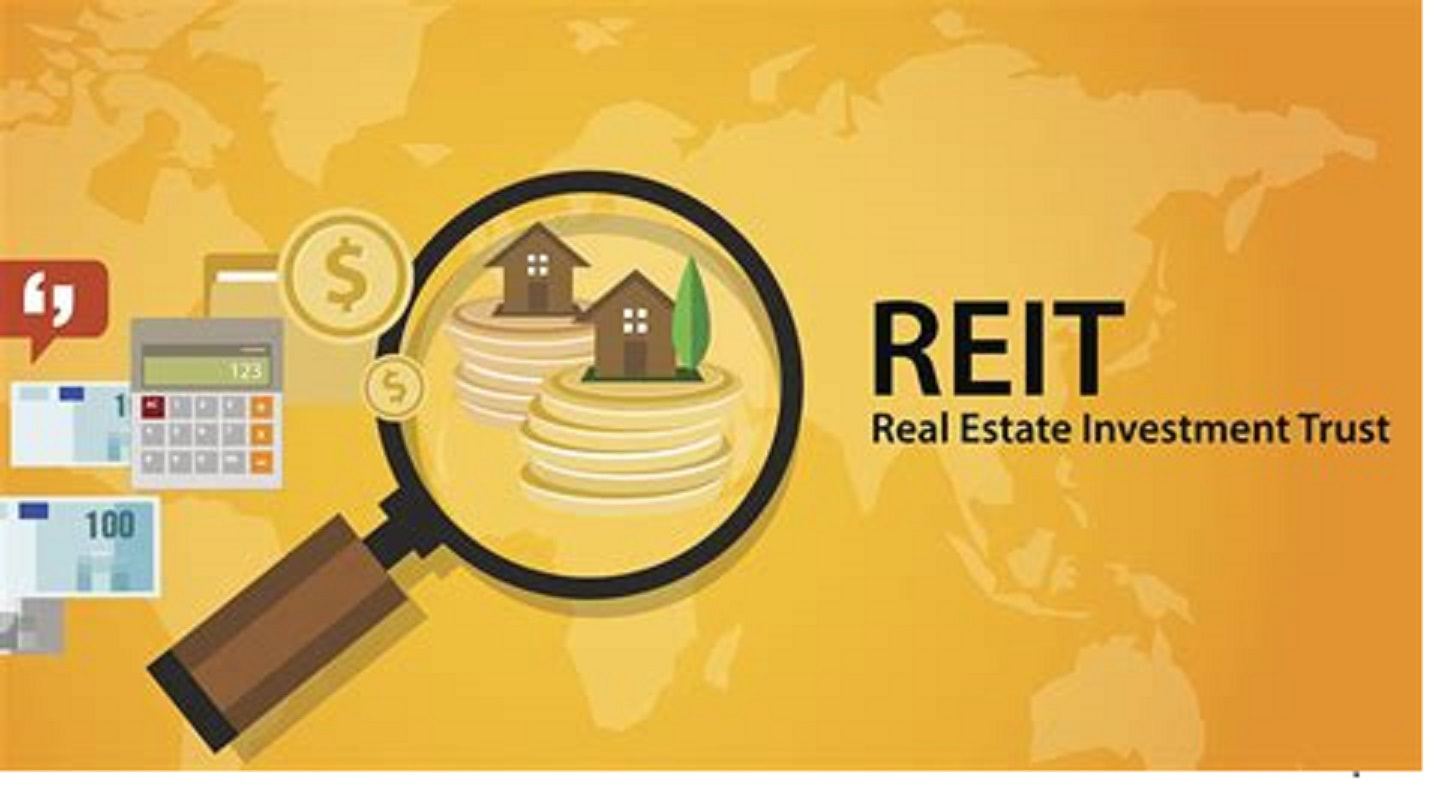|
Minimalism and Delayed Gratification Minimalism speaks of living a simpler, more focused life. Do you ever consider the difference in having it right now, or waiting for a bigger thing later on? The ability to delay an impulse for an immediate reward to receive a more favorable reward at a later time is the standard definition of delayed gratification. Studies have shown that the ability to delay reward is not easy but has great rewards for those who can learn to do it. The ability to self-regulate and show control will directly impact the outcomes of all your future plans. In a culture surrounded by messages saying that you can lose the discomfort right now, the ability to wait for a long-term reward is less attractive and few are willing to wait. Delayed gratification is a muscle we can all grow to serve our future selves. Sometimes discomfort is the more beneficial choice. Today we are living in a time when people want things, and they want them now. Patience has almost began to be a thing of the past. Christians sometimes forget that we are commanded to wait on the Lord. (Pro 20:21) An inheritance may be gotten hastily at the beginning; but the end thereof shall not be blessed. (Pro 20:22) Say not thou, I will recompense evil; but wait on the LORD, and he shall save thee. (Psa 27:13) I had fainted, unless I had believed to see the goodness of the LORD in the land of the living. (Psa 27:14) Wait on the LORD: be of good courage, and he shall strengthen thine heart: wait, I say, on the LORD. And the bible tells us we can manually acquire patience, but it comes from a tough source. (Rom 5:3) And not only so, but we glory in tribulations also: knowing that tribulation worketh patience; (Rom 5:4) And patience, experience; and experience, hope: (Rom 5:5) And hope maketh not ashamed; because the love of God is shed abroad in our hearts by the Holy Ghost which is given unto us. So verse 3 says we can acquire patience, but it comes via tribulations. I think it best to learn a little patience without having to go through the tough times. I am sure you have friends who got married and expected in their first year of marriage to have a lifestyle better than their parents. It may have taken the parents a lifetime to acquire their home and possessions. But the newlywed couple immediately want a large home and two cars. And with credit so easy to obtain, many buy houses that cost over 30% of their take-home pay, putting a crunch on their finances. Part of this is due to FOMO. The Fear of missing out. Best to do JOMO. That is the Joy of missing out. Article on FOMO. Buying things on credit is just the way people do things today. But the bible is clear on this plan. (Rom 13:8) Owe no man any thing, but to love one another: for he that loveth another hath fulfilled the law. I think this verse goes way beyond debt, but it is about having a life honest before all men and carrying our own weight. Not owing anyone but being a giver rather than a taker. So what happens when the young couple gets in a bind? Pull out the plastic and continue spending as if it were cash. The government reported that in July Credit card debt in America exceeded 1 trillion dollars. Not billion… one trillion. The student loan crisis is at 1.4 trillion and many discuss it on the news. Not a word is mentioned about the credit card disaster Americans are facing. Why is that? Money talks and credit card companies carry big power. They spends thousands of dollars advertising each day. I have had people say that we just have to accept that you will forever have a car payment. That may be what the banks want us to believe, but it is not a biblical decision. Dave Ramsey says that the bible is filled with financial advice which is totally true. Over 2,000 verses are directed on how to manage our money and finances. He pointed out in his book “The Total Money Makeover” that if a person starts paying a $495 a month car payment at age 25 and continues to do that until retirement age of 65, it will cost you a lot. If you put that $495 a month into a mutual fund that averages 12% return, that would come out to almost 6 million dollars. Say it only averages 8%? Only about 3 ½ million. So the money to retire wealthy is there if we will just be disciplined and use the right mindset from our youth up. He points out that if a person would put that $500 a month in savings for one year, then you could buy a $6000 car with cash. Do it again for another year and now you trade up to a $12,000 car with no interest. Then you could begin that path down a road to success by investing that car money. Is it good to owe money? Coming from a background of spending more than I made, I can tell you the answer is “NO”. It is not good. (Pro 22:7) The rich ruleth over the poor, and the borrower is servant to the lender. I don’t want to be a servant to anyone anymore except God. The devil wants us to go down a tough path in life. That is not God’s plan for us. Back on the topic of credit cards, I want to mention that credit card companies spend millions of dollars on advertising and gimmicks to get us to use them. The biggest temptation they throw out is cash back rewards. This one is one that I decided was worthwhile. I mean I am spending the money, anyway, why not get 2 to 5% back. Well after watching the show on credit cards on the Dave Ramsey show, I have even decided to stop using those. He ranted and raved about how stupid people are to have run up a trillion dollars of debt on credit cards. Before watching that show, I spent several hours a month making an XLS sheet to expense all my items making use of the best cash rewards. What I did not consider in this is that if you get back 2%, how much is that really? That is 2 cents for each dollar spent. So if you spend $1,000, they pay you $20. Think about how minuscule that is. And while we have been able to pay those off monthly, 60% of people will not do that. So you are spending a thousand to get back $20? The first month you don’t make that full payment, guess what happens? 23% interest. Think how much you made on getting 2% back. You just lost 21%. According to research I did, 60% of credit card users DO NOT pay off the balance monthly. We lose, the credit card companies win. Don’t fall for these credit card gimmicks. Dave Ramsey said that free airline points are big sellers. Guess why? 80% of those free miles are NEVER redeemed. And those few who fly to Hawaii or Cabul for a free vacation, guess what happens? They run up a big vacation bill on their credit card that they can’t pay. Who owns all those shiny chrome buildings? Not you and me, but Discover, American Express, Visa, and Mastercard do. Once I swore off cash-back cards, I have been happier and feel the most free I have ever felt. As Dave Ramsey points out, a Debit card will do everything a credit card will do except for one thing. A Debit card will NEVER get you into debt. The reason is you are spending your own money. Spending your own money is always the best policy. Learning to live a disciplined life is so important and it is a plan that synchs with God’s instructions on how to deal with money. If you want freedom, it can be found. But you must make a decision today to do it, and then seek the Lord’s help. When we fully rely on the Lord, we can get the help we need. (Luk 18:27) And he said, The things which are impossible with men are possible with God. (Luk 11:9) And I say unto you, Ask, and it shall be given you; seek, and ye shall find; knock, and it shall be opened unto you. (Luk 11:10) For every one that asketh receiveth; and he that seeketh findeth; and to him that knocketh it shall be opened. If you want the most gratification out of life, EXPECT DELAYS. But if you are patient and will wait for your blessings, I believe you will be shocked how many blessings await for those who will do things God’s way. List of All Investment Articles List of All Minimalism Articles Internet Direct Laptops
0 Comments
The Fear of Missing Out - FOMO A new little 4 letter word is popping up on Social Media nowadays. Remember the WWJD acronym that we had about 20 years ago that asked What Would Jesus Do? Some of that was valid, and I think we should question when we do things or react to situations if that is truly how the Lord would have us act. But this new JOMO word surprised me as I wanted to find the book I had been reading about it, and found that there were literally dozens of books on Amazon on JOMO. So what is JOMO? It is the opposite of FOMO. JOMO means the JOY OF MISSING OUT FOMO is the FEAR OF MISSING OUT I read Joshua King’s book “JOMO” and found it quite interesting. You can buy it here. In his book "JOMO", Joshua King said: Getting older has its perks, and one of them is being able to make your own decisions. As we get older, we have the chance to participate in everything everyone else is doing. We do this because of FOMO, the fear of missing out. Or we have the opportunity to experience the JOMO, the Joy of Missing Out. You would think after high school, we would not fall for peer pressure, but sadly you are mistaken. If anything, there is more peer pressure in your 40’s than in your 20’s. You have more options available and more money to buy things. We need to stop living like this and think more about the long-term. Can you relate to these acronyms? JOMO and FOMO? I sure remember as a teenager how I wanted to be accepted. Back when I was in high school, the cool car to have was a ’57 Chevy. I guess that goes to show my age. But this was in the years 66 thru 69 when I graduated. That was 1969 in case any of you young people who can’t relate to how long ago it was. Boy if you didn’t have a ’57 Chevy, you were missing out. When I turned 16, I talked my dad into letting me buy a car in 1967, and with the financing of my grandmother, we went down to Seymour and I bought myself a pretty turquoise ‘57 Chevy for $325. I should have kept it. Probably worth $40,000 nowadays. The FOMO was real to me back then. I had a great fear of missing out. One day when I was a senior there in Munday, Texas, I counted 53 cars in the parking lot around Munday High School that were ’57 Chevys. That is probably out of a total of like 100 cars. I had 51 kids in my graduating class, so there were more of the ‘in’ cars than kids in my class. So having the popular car was cool, but back then having the fastest one in the drag races was even more important. One rich dad bought his son a beautiful one here in Wichita Falls from an air force captain with a Corvette motor, a 4-speed, and 375 horsepower 327 motor. He reigned as the fastest 57 Chevy in Knox County for 3 years. I worked as a mechanic through high school and learned a lot. I kept after it and finally rebuilt the motor in my car. I added a 4:56 low geared rear end, put on a 4-barrel Holley, and a Corvette solid lifter cam in my ’57. It would only top out at 105mph, but it would do it in the quarter mile. So finally SOMEONE (me) defeated that super fast ’57 twice in two races before I headed off to college. I wanted to be cool and respected by all the other kids. For a few weeks, I was the talk of the town. Fastest of the fifty three ’57 Chevys in Munday, Texas. Guess what I found out when I went to college? None of my professors were impressed that I had the fastest 57 Chevy in Knox County. Not a single employer ever cared about any of that. But the Fear Of Missing Out really controlled me in those high school years. And I didn’t grow out of it in my 20’s either. It was in my middle 40’s before the light came on that I didn’t need to fear what other people thought, but I needed to live a simpler life and fear what God thought. And that is when I discovered the JOY OF MISSING OUT. Man, you are so much happier when you can let this old world go. Don’t be concerned about keeping up with Jones, but worry about living a simple consistent Christian life. If you have a lot, be happy. If you have a minimal existence, be happy. How we live and how we treat others is way more important than things or FOMO. Col 3:12 Put on therefore, as the elect of God, holy and beloved, bowels of mercies, kindness, humbleness of mind, meekness, longsuffering; Col 3:13 Forbearing one another, and forgiving one another, if any man have a quarrel against any: even as Christ forgave you, so also do ye. Col 3:14 And above all these things put on charity, which is the bond of perfectness. When we get the JOMO, we truly have it all. We will be satisfied in whatever lot our part is in this life. We can look to God and know it is He that holds our tomorrow. And then with His grace, we can do whatever we set out to do the very best we can. Life can be simple when we forget about what others are thinking. Let us all strive for more JOMO (The JOY of Missing Out) and not have the FOMO (The Fear of Missing Out). List of All Investment Articles List of All Minimalism Articles Internet Direct Laptops
Investing in Real Estate Investment Trusts (Reits) DISCLAIMER - I am not a Financial Advisor and do not work for any Brokerage Firm. The opinions given are of my own and are not to be used as professional advice. These are my findings and can hopefully help you to make informed decisions on investing. Consult a Broker or Lawyer before making any investment. One of the most underused investment categories to obtain Passive Income is Real Estate Investment Trusts known by the acronym of Reits or Reit. We discussed a large number of investment categories in an earlier article. That article did not break out all the types of investments a person could make, it simply listed the 4 main types of investments which are Stocks, ETFs (Electronic Traded Funds), Mutual Funds, and Bonds. One of those 11 diversification types is Real Estate. A person can invest in Real Estate in many ways. You can rent a room of your home, purchase a duplex, live on one side, and rent out the other. You can buy houses individually and use them for rental property, or purchase apartment complexes. Each of these methods gives you passive income, but all require a substantial amount of effort and may require assistance in maintenance or maintaining the tenants and collecting the rent. Then there are REITs (Real Estate Investment Trusts). Someone else maintains the properties, and you simply reap the rewards of the profits of the companies. Not all Reits are alike, and I encourage you to study these closely before making any purchases. Note that MREITs provide funding, but do not own the property. Do not automatically ignore MREITs as there are many good ones. We may come back and do an article on just MREITs due to the complexity of them. The more I read, the more I realize we must study these to clearly analyze their profitability compared to regular REITs. One of the great things about REITs is that most of them own the properties. Many Reits return above 10% on annual or quarterly dividends, making them excellent for passive income. And if they own the property, you can expect appreciation in Property values, particularly in this high inflation market we currently are in. I am so pleased with REITs potential, that I am currently upping my investments to have 11 to 15% of my total Roth IRAs invested in some form of REITs due to the high dividends and stock appreciation. Before explaining all the types, let me also mention that if you do not want to spend the time to research all the stocks (REITs), then there are some excellent ETFs that do the legwork for you and give consistent average returns. I have all 3 of these in my investments and all have done very well. Note there are many others that invest in REITs, these just happen to be the 3 we have purchased. Check out the following three: RIET - Hoya Capital Hi Dividend ETF HOMZ - Hoya Capital Full REIT ETF VNQ - Vanguard Real Estate Index Fund ETF MREITS are companies that provided funding for Rental Properties (IE: Mortgage REITs). Mortgage-backed securities ae bundles of mortgages package together to form a bond-like asset. A good website article on MReits by Michael Webster is: https://www.moneycrashers.com/mortgage-reit-mreit-definition/ The next few paragraphs were pulled from that article above. What Is an mREIT? The “m” stands for “mortgage,” as mREITs are a special group of REITs that base their real estate investments on the mortgage market. For the most part, this means that mREITs buy mortgages on the secondary mortgage market – in other words, they purchase mortgage debts. After a bank lends money to someone buying a house, the bank sells that mortgage to a mortgage buyer (such as an mREIT), and since mortgage rates are tied to the government bond market, mREITs are closely tied to that market as well. Types of mREITs: When an mREIT is established, it usually specializes in one type of mortgage debt. Some companies only buy mortgages that are backed by a federal agency like Fannie Mae, Freddie Mac, or Ginnie Mae. They choose these mortgages because they are backed by a federal guarantee and thus there is a lower risk of default, which means that they are also less profitable. Other mREITs, sometimes called non-agency mREITs, specialize in mortgages that are not guaranteed by a federal agency. These tend to pay higher dividends, largely because there is a higher risk of the mortgages being defaulted upon. Owning Shares Investors can buy into these mREITs by buying shares in the companies, which are publicly traded on a stock exchange. As a partial owner in the company, shareholders receive dividends from the mREITs – and that is where those attractive high yields come in. Like other public companies, an mREIT goes up and down in value as the market reevaluates the company’s value. If investors believe that an mREIT will become less profitable because it becomes more expensive for them to raise money or because mortgages will underperform, the share price will go down. Since many investors look at mREITs as a source of passive income thanks to those high dividends, mREIT shares will also depreciate if investors think that dividends will go down. Some of the other types of REITS where most own the properties are: (These are specifically focused REITs) Office REITS provides commercial real estate involving office and Rental business space. Residential REITs focus on single-family homes, residential housing such as apartments, and mobile home lots. Data Center REITs. Rather than proving physical storage, these may be providing data storage such as Cloud sore in data server facilities. DLR/Digital Reality is one such REIT. HealthCare REITS. Of course, this category focuses on the healthcare sector including medical offices, Senior-living facilities, and hospitals. A couple of the larger established Healthcare REITS are MPW – Medical Property Trust, and LTC Properties (LTC). Infrastructure REITs. These build the inner workings of cities and towns including cell towers, energy pipelines, fiber, and telecommunication structures. Retail REITs. These are mainly shopping centers and malls. Hospitality REITs. These are focused on hotels and resorts dealing mainly in lodging. Timberland and Farmland REITs. These are focused on land for farm crops, and farmlands. Industrial REITs. These mainly deal in large warehouse and distribution centers. A hot REIT nowadays is the Self Storage REITs. They collect rents from individuals and companies storing items in Self Storage units. With so many types of REITs, you may want to consider just purchasing the ETFs such as Riet, Homz, or VNQ which give you exposure to what they consider the overall REITs and give consideration to all categories. I will come back and do a more extensive article on REITS in the future. I clearly think these are excellent investments. There are a lot of good ones and some not-sogood investments in REITs. So be careful and don’t just chase the high dividends. Look at their long-term Earnings Per Share and their Price to Earnings Ratio. (P/E). The total asset values should exceed their market share. (Number of outstanding shares * Price Per Share.) This requires pulling the Balance Sheet from their quarterly 10-Q SEC filings which we will delve into in future articles. Always be aware of all the pitfalls in investing and don't just take recommendations, but prove the numbers in a logical decision making process. List of All Investment Articles List of All Minimalism Articles Internet Direct Laptops
DISCLAIMER - I am not a Financial Advisor and do not work for any Brokerage Firm. The opinions given are of my own and are not to be used as professional advice. These are my findings and can hopefully help you to make informed decisions on investing. Consult a Broker or Lawyer before making any investment. As we plan out how to invest our money to get our maximum returns, we need to make use of a special group of stocks making up the REITs category. If you do not have some money invested in Real Estate, this is a very effective method to make money. We did an article explaining REITS a while back. Read about Reits here. Today we are going to talk briefly about Business Development Companies. Many of these are tied to Reits, but they also provide capital for other business uses besides Real Estate. What Is a Business Development Company (BDC)?A business development company (BDC) is an organization that invests in small and medium-sized companies as well as distressed companies. A BDC helps these firms grow in the initial stages of their development. With distressed businesses, the BDC helps the companies regain sound financial footing. Similar to closed-end investment funds, many BDCs are public companies whose shares trade on major stock exchanges, such as the American Stock Exchange (AMEX), Nasdaq, and others. As investments, they are high-risk but offer higher rewards. I try to find solid companies that provide financing that is being sold at a discount and also show dividends of 8% or more. BDCs are much like private equity funds for small businesses. While private equity funds tend to be restricted to high-net-worth and institutional investors, Block Development Companies are publicly traded on the stock market and available to anyone with a brokerage account. What is even greater, is they are transparent and easy to research. Like all stocks, these may or may not go up in price. However BDCs do normally pay dividends, and those are the ones I try to buy. Business Development Companies make debt and equity investments primarily to small or mid-size companies. They are very much like REITs in how they perform. BDCs were created by congress to encourage investing in the real economy. They benefit from having preferential tax treatment as they pay no income tax as long as they pay out at least 90% of their net income to investors. BDCs and Reits are two of the best dividend stocks regarding yields. By not having to pay income tax, they can pass on higher returns to the shareholders. I encourage you to read more about Business Development Companies and consider purchasing some of them to round out your complete portfolio. I read a good article this past week recommending what they considered 5 of the best BDCs. All were good, and I purchased 4 of the 5. (All are doing well by the way.) You might look at these. Be aware here in March we are having a roller coaster ride on the stock market, so buy on down days if you decide to buy. Every dollar you buy at a discount is more money that should return to you as the stock comes back to the normal range. I try to never buy when a stock is near its 52-week high. Business Development Companies to consider. MAIN – Main Street Capital. It pays a monthly dividend and is considered the blue-chip BDC. They provide financing to middle-market companies, typically with $10 million to $150 million in yearly revenue. ARCC – Ares Capital. They are the world's largest BDC with over $10 billion of capitalization. ARCC is well diversified with money in Software, Healthcare, and various Professional services with no more than 7% in any one sector. ORCC – Owl Rock Capital - A newcomer in DBC stocks which just started trading in 2019. They have paid a steady stream of income dividends with current rate above 9%. They are well diversified in thier portfolio with mainly software, insurance, and food and beverage companies. HTGC – Hercules Capital. Hercules acts more like a venture capital company. HTGC is the largest BDC focused on venture capital financing. Currently showing a 9.7% rate of return. TPVG – Triple-Point Venture Growth BDC Corp. They are the smallest of the BDCs mentioned here today. They have a market cap of $441 million and are a bit more speculative than the others mentioned. Triple Point’s portfolio is mainly invested in debt instruments, mainly floating-rate instruments. All of these are just examples of Business Development Companies. Don’t buy them based on reading about them here, but study and be sure they make good sense for your investment portfolio. I think everyone can gain by having a fully diversified portfolio, and that means a combination of Full Market Stock Indexes, Bonds, CDs, Dividend Growth Stocks, Preferred Stocks, Reits, and Business Development Companies. We have articles on all of these in the link below on Investment Articles. Have a great day! List of All Investment Articles List of All Minimalism Articles Internet Direct Laptops
CLOSED END FUNDS (CEFs) DISCLAIMER - I am not a Financial Advisor and do not work for any Brokerage Firm. The opinions given are my own and are not to be used as professional advice. These are my findings and can hopefully help you make informed investing decisions. Consult a Broker or Lawyer before making any investment. I want to discuss a type of investment that many are unfamiliar with in the investing industry. These are called CEFs or Closed-End Funds. Closed end funds are mutual funds that have a set amount of shares. The amount is set at the funds IPO and can only be changed by a management decision. Normal mutual funds can sell more shares, but not CEFs. Closed-end Funds are basically like a mutual fund but they can not sell additional shares. Since these funds are fixed, they sell initially at Net Asset Value. (NAV) So in the market, these sell for more or less of their value. If the price is more than NAV, they are selling at a Premium. (like +2.1%) Since these are managed, when selling at a Premium it may be due to the excellent management. You have to pay for quality funds. A quality fund that normally is above premium of NAV is PIMCO Dynamic Income fund (PCI). I own shares of this CEF. Where the most money can be made is when they are selling at a discount to NAV. I purchased one today which is a healthcare REIT that is selling at -8.45 to NAV with an annualized return of 6.71%. The one mentioned is THQ – Tekla Healthcare Opportunities Fund. Prices fluctuate all the time, so sometimes some really good prices are there for the taking. It should be noted that CEFs many times do not perform well in periods of fluctuating interest rates like we experienced in 2022. Here is a complete rundown from the Fidelity website that does a good job in explaining CEFs. Fidelity Article on What is a closed-end fund? A closed-end fund holds an IPO at launch and the money raised from that IPO is used by portfolio managers to buy securities. Even though they have been traded in the US for over a century, closed-end funds (CEFs) are not well understood. A common misunderstanding is that a CEF is a type of traditional mutual fund or an exchange-traded fund (ETF). A closed-end fund is not a traditional mutual fund that is closed to new investors. At its most fundamental level, a CEF is an investment structure (not an asset class), organized under the regulations of the Investment Company Act of 1940. A CEF is a type of investment company whose shares are traded on the open market, like a stock or an ETF. Why are they called "closed-end" funds? Like a traditional mutual fund, a CEF invests in a portfolio of securities and is managed, typically, by an investment management firm. But unlike mutual funds, CEFs are closed in the sense that capital does not regularly flow into them when investors buy shares, and it does not flow out when investors sell shares. After the initial public offering (IPO), shares are not traded directly with the sponsoring fund family, as is the case with open-end mutual funds. Instead, shares are traded on an exchange, typically, and other market participants act as the corresponding buyers or sellers. The fund itself does not issue or redeem shares daily. Like stocks, CEFs hold an initial public offering at their launch. With the capital raised during this IPO, the portfolio managers then buy securities befitting the fund's investment strategy. After the IPO, there are only 5 ways to increase capital within the portfolio
Similarly, there are only 5 ways capital can flow out of a CEF
So, because capital does not flow freely into and out of CEFs, they are referred to as "closed-end" funds. The "closed-end" structure gives rise to discounts and premiums. After the IPO, a CEF's shares trade on the open market, typically on an exchange, and the market itself determines the share price. The result is that the share price typically does not match the net asset value of the fund's underlying holdings. (Net asset value = (fund assets - fund liabilities)/shares outstanding) If the share price is higher than the net asset value, shares are said to be trading at a "premium." This is typically portrayed as a "positive discount," although mathematically that is counterintuitive. For instance, a fund trading at a 2% premium would be shown as "+2%." If the share price is less than the net asset value, the shares are said to be trading at a "discount." This is typically portrayed with a minus sign, "-2%." The closed-end structure also has other implications
The relatively stable capital base, in turn, gives rise to 2 other attributes: First, it makes CEFs a good structure for investing in illiquid securities, such as emerging-markets stocks, municipal bonds, etc. The higher risk involved with investing in illiquid securities could translate into higher returns to shareholders. Second, regulators allow the funds to issue debt and preferred shares, with strict limits on leverage. The fund can issue debt in an amount up to 50% of its net assets. Another way to look at this is that for every $1 of debt, the fund must have $3 of assets (including the assets from the debt). This is commonly referred to as a 33% leverage limit. The fund can issue preferred shares in an amount up to 100% of its net assets. Another way to look at this is that for every $1 of preferred shares issued, the fund must have $2 of assets (including the assets from the preferred shares). This is commonly referred to as a 50% leverage limit. The point is that CEFs are not highly leveraged, though any amount of leverage magnifies the volatility of the fund's net asset value. Key takeaways
Link to Fidelity Research on CEFs. So in summary, I believe that Closed-End Funds are great for income and some experience growth in value based on their underlying investments, particularly those tied to REITs. They typically will move back to their NAV over time which means you can make some good money by buying them when they are at a discount to NAV. Be sure to analyze the fund before purchasing. No one thing such as a discount to NAV means it is a super investment. List of All Investment Articles List of All Minimalism Articles Internet Direct Laptops
Ten Ways to Save Money as Minimalists One of the greater benefits of being a Minimalist is that you automatically save money when you start living a life of minimalism. By being intentional in our purchases, we cut out a lot of unneeded impulse buying. Knowing what you truly need and only purchasing needs is a great start to saving money. Before becoming minimalists, my wife and I purchased a lot of things without truly thinking about it. By making a rule that you must get rid of one thing before bringing in anything new will certainly help you get things more organized. Minimalism will help you consider whether something is truly needed. List of 10 Ways to Save Money
I hope this list is helpful. It is certainly not an exhaustive list of all the ways to save money, but perhaps it will stimulate you to think of many others. Check out some of the links below for new articles on minimalism that I think will be a blessing to you. Why Mom’s Need Minimalism from NoSideBar Ten Ways to Declutter and Downsize Ten Tricks Retailers Use to Get You to Make Purchases List of All Investment Articles List of All Minimalism Articles Internet Direct Laptops
DISCLAIMER I am not a Financial Advisor and do not work for any Brokerage Firm. The opinions given are my own and are not to be used as professional advice. These are my findings and can hopefully help you make informed decisions on investing. Consult a Broker or Lawyer before making any investment. Why I Love Passive Income – Part 2 What is greater than Passive Income? I started last week’s first part of this 3 part series on Why I Love Passive Income. I think it will help you to start on this topic beginning with part one. Why I Love Passive Income One of my favorite authors on Amazon Kindle Books is Joshua King. He has been a real inspiration to me to get active in making income from various methods. In the book I was reading today “Diversify Your Passive Income”, Joshua King pointed out several important things. One is that we need to diversify our income by using our creative selves. Many never let their talents show. You may have a tremendous skill to do things that can make you money. Perhaps you can write books or start a business that uses your creative talents. Like me, Joshua is a firm believer in investing in stocks that pay dividends and finding growth stocks that will appreciate while paying consistent dividends every month or every quarter. And most importantly, he says we need to think right about investments. He said so many people try to adapt retirement to fit their investments. While you may have to do that, it is not a good long-term plan. We need to develop a mindset to grow our money. (Growth Mindset.) Trying to make do comes from a scarcity mindset. If you grew up in a poor or modest family, your parents may have caused you to have that scarcity mindset. What our parents believe carries over to us, but we do not have to stay with that scarcity mindset. Having a fixed mindset is not good. We should grow and continue to learn our entire lives. I read a great book on Mindset by Carol Dweck. Below is a link to the book on Amazon. Mindset by Carol Dweck Another great book to stimulate your thinking on Mindset is “Limitless” by Jim Kwik. Limitless by Jim Kwik What you believe and think has a lot to do with your success in life. Henry Ford once said: “If you think you can or you think you can’t, either way, you are right.” So it is crucial to have the right mindset. “To be successful, you must know what you are doing, like what you are doing, and believe in what you are doing.” Will Rogers There are literally dozens of ways to earn passive income. You can make your own YouTube channel, open a side business that you or someone else runs. You might own land and rent it out as farmland. Cattle can be raised for a profit with minimal work on your part. As I said there are dozens if not hundreds of things that can make you Passive Income. Passive Income comes in without you trading your time for pay. Another option is to buy real estate and rent out rooms or the whole house. There are many advantages to making real estate investments. It takes a lot of money to get into real estate, but you can purchase Real Estate Trusts and get most of the advantages of increasing home prices without the hassles of paying for all the maintenance costs. No annual mortgage tax payments, no wake-up calls for broken sinks or commodes. Also if money is tight, you can quickly cash out your REITs. Try turning a house quickly and get enough to make a profit. You can buy direct Real Estate Trusts or buy them via ETFs or Closed-End Funds or stocks. A great stock that deals in Reits is AGNC. They currently pay over 14% in monthly dividends and are very steady and consistent month to month. Other good stocks that pay monthly are PDI and PDO. How to Invest in Real Estate Trusts So my method to acquire passive income is to purchase assets. These can be as I mentioned in last week’s article, ETFs (Exchange Traded Funds), stocks, or mutual funds. I will discuss my other two high-paying dividend categories in the next few weeks. These next ones are my numbers 2 and 3 in regards to making me the most money. Those two next week will be CEFs (Closed End Funds) and BDCs. (Business Development companies.) I urge you to continue to study and find some methods to start earning passive income. As Joshua King said, having a growth mindset is the starting point to gaining a lot of Passive Income. Grow and learn every day. List of All Investment Articles List of All Minimalism Articles Internet Direct Laptops
|
David ParhamChristian Minimalist and Investor. God guides and helps me everyday. Archives
May 2024
Categories |
||||||||||||||||||||||||||||||||||||||||||







 RSS Feed
RSS Feed
